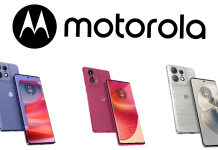The US continues its pursuit of Chinese telco equipment manufacturer Huawei in the latest missive fired out of the US State Department this week. Under the heading of “5G: Who can you trust?” the US department charged with diplomacy makes the fairly luke-warm argument that Huawei cannot be trusted.
To make their own assessment, State encourages 5G network builders – and by extension, consumers – to ask themselves three questions about equipment vendors, and these questions got me thinking.
First up, here’s the questions themselves, straight from State:
- Is the company headquartered in a country where there is rule of law and an independent judiciary in place? This provides evidence of whether a company can withstand pressure to compromise its network.
- Does the company have a transparent ownership structure? This ensures that consumers will know who is really making the decisions, particularly if a company is partially or wholly controlled by a foreign power.
- Does the company have a history of ethical behaviour? Past performance is the best way to determine whether consumers can trust a company’s claims that it will not compromise its networks.
On its face, these seem like three pretty reasonable questions, right?
A company headquartered in a country without the rule of law and/or an independent judiciary, that hides its ownership structure, and has a poor history of ethical behaviour is almost certain to be a company you don’t want to trust.
But how many companies can that actually be said about? Is it exclusively a Chinese problem? Is it even a Chinese problem? Are we even asking the right questions?
Is the company headquartered in a country where there is rule of law and an independent judiciary in place?
In countries around the world – and I’m not including China in this one – the rule of law and an independent judiciary is no guarantee that a company can “withstand pressure to compromise its network”. In fact, quite the opposite.
The rule of law and an independent judiciary can be a significant factor in companies being unable to withstand pressure to compromise their networks (or whatever else they do).
Take the US for example. It has secret courts (arguably run by an independent judiciary) that can force anyone – human, corporation or otherwise – to hand over information to the government for just about whatever purposes it imagines. Step away from those courts, and you still have a legal system which can – and does – compel the handing over of information on a daily basis for all manner of purposes.
Yes, some large corporations crow about how they resist unnecessarily broad subpoenas and warrants, but that’s not really the issue. With a fairly narrow subpoena or warrant, the information gets handed over straight away.
This is hardly a uniquely American problem – the same features can be found in jurisdictions the world over.
Yes, perhaps many of those jurisdictions cannot force companies to “compromise their networks” by inserting backdoors into their products.
Australia can, though, with new legislation introduced in the last couple of years. Better yet, whether it’s been used or not is a secret .. and it’ll probably never be reported.
So, the rule of law and an independent judiciary really doesn’t mean much.
Does the company have a transparent ownership structure?
This is a rather subjective question in my view – yes, objectively, you can look at whether a company has made public information about its ownership. In some jurisdictions – and I can talk more confidently about Australia than others – most information about corporations is either public, or accessible by the public for a modest fee. Information about owners, directors, shareholders and others is all accessible if you know where to look.
However, a company can structure its operations so that this information is harder to find. Nominee companies, agents and the like can obscure much about a company, but not all. A trustee can own shares for someone else’s beneficial interest – and that beneficiary may be the one making decisions about what a company does – but the identity of the trustee will still be apparent.
I’ve read much about how Huawei’s ownership is supposedly obscured. Huawei publishes its own information about its ownership, and it seems fairly transparent to me. In effect, the company is owned by its employees through an employee share program – the same as some other large corporations around the world.
It is technically a privately held company, meaning some of its operations are not required to be made public – things such as regular returns, dividends and the like.
However, a company’s ownership structure is but one (and a very small) measure of who’s making the decisions. There are many corporations in the US which make questionable decisions about their users’ data, for example, and their transparency (or lack of it) around ownership has next to no bearing on this.
A foreign power need not be involved for a corporation to make shit decisions. Just look at Facebook or Twitter.
Does the company have a history of ethical behaviour?
This question is an interesting one. State has restated its claim that Huawei has “a history of ethical violations, including stealing secrets from its competitors.” That’s as may be, but again, if we’re measuring companies by their ethics and being good corporate citizens, let’s have a look at other companies around the world and assess them.
Do Facebook and Twitter have a history of ethical behaviour? Facebook almost certainly does not. Twitter allows white supremacists, Nazis, and many more undesirable characters – and their behaviour – to go largely unchecked. Many American companies let their ethics go a little in using cheap overseas labour to maximise their profits, even when the employees building their devices are throwing themselves off buildings.
Ethical? Perhaps not.
It’s not just in tech, either. Look at clothing companies which benefit from cheap questionable labour from overseas. They’re in it too.
We agree, past behaviour can be a powerful indicator of future behaviour, but to identify a single company out for criticism – when so many are guilty of equally evil transgressions – is to miss the forest for a tree.
In an environment where corporate social responsibility is a buzzword and companies are ultimately answerable to their owners (and responsible for delivering profits to them before anything much else), measuring ethical behaviour is a risky road to go down.
Can the US honestly have us believe that Chinese corporations have questionable ethics and to hang them for it, when so many US-based (and, to be fair, worldwide) corporations are just as ethically challenged?
I’d suggest it’s not as black and white as State would have us believe, and everything that comes out of the US – particularly when it’s as politically charged as this – should be taken with a huge dose of salt.





We hold all comments for moderation but we don’t usually delete any unless they’re abusive, spam or just inappropriate. I can’t recall the last I deleted actually.
You deleted my post a few days ago – in a neobank story – where I listed all the neobanks operating in Australia.
Oh well. Hey, I’ll give you another story. If you don’t want to use a Huawei router, Google’s new Nest WiFi just became available in Australia this morning (Tues 5 Nov 2019.) It’s in the Google store (it just switched from Pre-Order to Buy), and also JB-HiFi (you have to use the search function to find it.) November 5 was always the date Google set for it.
Thanks Les, our review just went up!
It’s possible if you had URLs in it that your comment went to the spam filter. I’ll take a look.
It was in spam Les, sorry. It’s been published now on the original thread.
Thanks, Chris.
The ‘five eyes nations’ (a fived-eyed monster), are always wanting to eavesdrop on their citizens. Sometimes they arrange for another five-eyes country to eavesdrop on their own citizens. They’re after criminals. But they’re also after whistleblowers, and also journalists who have written stories unfavourable to the government (look at the ABC raids.) This is threatening to our democracy, and just as threatening as anything China may have done. Maybe our government is upset because it can’t force Huawei to install a back door in its network equipment as easily as it could with an American equipment provider. Our government really… Read more »
Damnit, you make an annoyingly good point Chris about ‘rule of law’ not just being insufficient for privacy but perhaps in some cards actively more risky *changes some of world view* So I think what the US State Dept might actually mean in question 1 is ‘Is the company headquartered in a country WHICH IS AN ALLY AND LIKELY TO REMAIN SO”. It’s a question of SECURITY not privacy. Perhaps
This is something that really struck me when I read this… the rule of law and an independent judiciary means precisely nothing when the laws themselves are designed to thoroughly, completely and totally disregard (or obliterate) any rights to privacy you might’ve had. Australia has the rule of law and a (very) independent judiciary. We still, however, have metadata retention laws which can be accessed by just about any law enforcement body for any spurious purpose, we still have plenty of draconian laws which give huge amounts of power to partisan ministers, and we have police forces which seem to… Read more »
Australia ruined its NBN, which became a total farce. Now the country has ruined the alternative… 5G, which has also become a farce. With our tyrannies of distance, having sub-par internet access will cost us dearly. The result is that 5G will become more expensive, lessening its uptake. So the government wants independence from China? Look at all your non-Huawei communications equipment. Where was it made? Yep, China. If the government wants to control where the telcos buy their equipment, maybe it needs to go back to the old days and reestablish a government telco. Remember Telecom Australia. Then the… Read more »
Sadly I think it suits our conservatives to have crippled connectivity, whether it be wireless or fixed. And yes, while most major telco equipment providers are making their gear in China, I think the argument – if I understand it right – is that the Chinese government could weaponise equipment made by a Chinese company.. somehow.. in the event of a global falling out. However, if the kind of gear we’re talking about is cell phone antenna arrays and other similar equipment which has a fairly narrow plausible vector of attack, then the 5G exclusion of certain manufacturers makes little… Read more »
There could also be an argument that our country is actually more secure if it has a range of mobile carriers, each using a range of different technologies.
Eg, one network is built using Huawei gear, another network uses Ericsson, while a third uses Nokia. If one system gets hacked into and brought down, the others will still operate.
But we are reducing the number of 5G equipment suppliers, which has increased prices, resulting in fewer mobile carriers (with TPG dropping out as a result of the Huawei ban.) Reduced diversification = reduced security.
For me anyway , the thing of it is , if information is required about another country or entity , generally as a rule non hardline and communist countries will not threaten peoples familys if they do not comply with the states wishes , non hardline countries will not make you disappear or perhaps suddenly give you isotope sickness if you do not comply or threaten to blab . You have to ask yourself about the scruples of certain countries . Remember when one certain country promised it was not building a military island out at sea , and it… Read more »
The US hasn’t been at all vigorous or underhanded in the way it’s treated whistleblowers out of its country though, right? It’s not waterboarded people to extract confessions, kidnapped people in one country and dragged them into others to interrogate them? Sure, the US might do things differently to China, but it doesn’t necessarily make them righteous? As for the other points you’ve made – just because Huawei makes a Radio Access Network (RAN) piece of equipment doesn’t mean that China “basically owns” that, or has any real control over where it’s installed, used, or over the data that’s being… Read more »
Hi Chris , i agree with you on the US thing , US is not squeeky clean , but i think you have to weigh up your poison so to speak , in the US , people do not generally just disappear or for having an alternate view of government policy or merely just hurting some high ups feelings . As for the state leaning on the one of the biggest companys that makes communication equipment , im of the opinion , despite their CEOs protestations to the negative , i think if they wanted to and if they where… Read more »